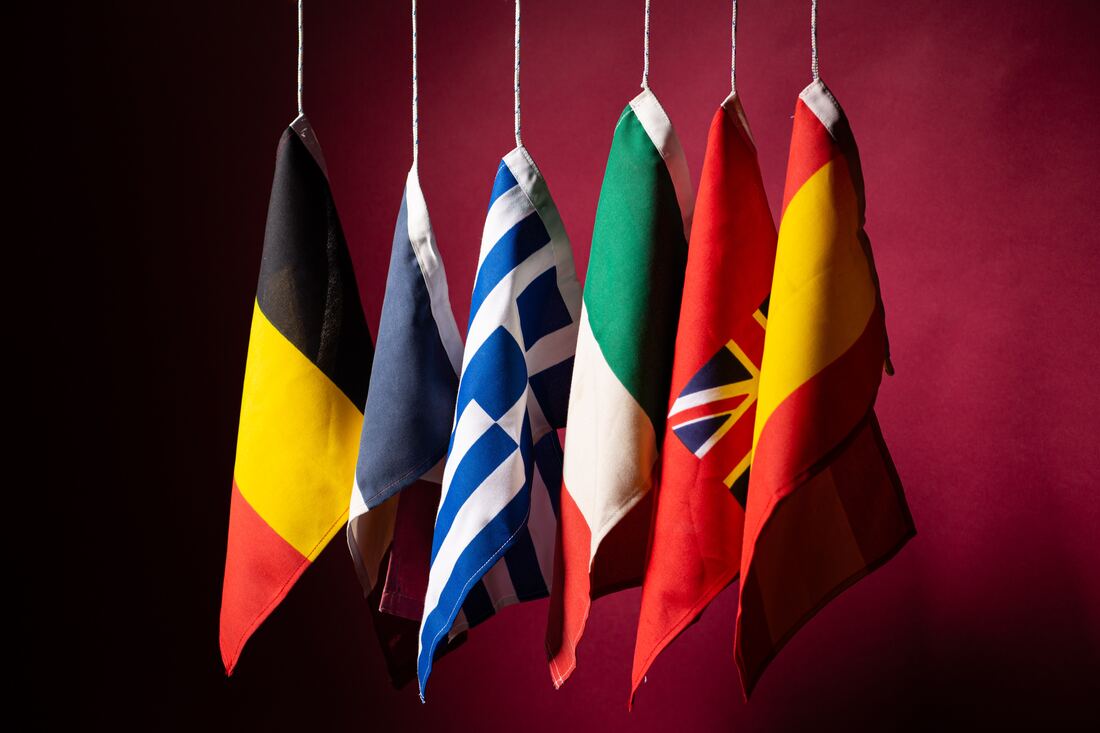‘Fiducia supplicans’ : What does it say?
By Luke Coppen
The Vatican’s doctrinal office issued a declaration on 18 December addressing “the possibility of blessing couples in irregular situations and same-sex couples.”
In a preamble to the 5,000-word document Fiducia supplicans, issued December 18, Cardinal Víctor Manuel Fernández said that the text marked “a specific and innovative contribution to the pastoral meaning of blessings.”
“Such theological reflection, based on the pastoral vision of Pope Francis, implies a real development from what has been said about blessings in the Magisterium and the official texts of the Church,” the prefect of the Dicastery for the Doctrine of the Faith (DDF) wrote.
What does the declaration, which is likely to provoke passionate reactions around the Catholic world, actually say? Here’s a brief guide for busy readers.
A rare ‘declaration
’The first thing to note is that the document is a “declaration” — the most important level of document issued by the Vatican’s doctrine department.
To get a sense of how rare it is, consider that the last such declaration was the text Dominus Iesus in the year 2000. That document, on the “unicity and salvific universality of Jesus Christ,” also unleashed strong responses.
The new declaration, “on the pastoral meaning of blessings,” consists of an initial “presentation” by Cardinal Fernández, followed by 45 numbered paragraphs, organized into an introduction and four sections, and supported by 31 numbered footnotes.
The text’s title, Fiducia supplicans, comes from its incipit, or opening: “The supplicating trust of the faithful People of God receives the gift of blessing that flows from the Heart of Christ through his Church.”
In a preamble to the 5,000-word document Fiducia supplicans, issued December 18, Cardinal Víctor Manuel Fernández said that the text marked “a specific and innovative contribution to the pastoral meaning of blessings.”
“Such theological reflection, based on the pastoral vision of Pope Francis, implies a real development from what has been said about blessings in the Magisterium and the official texts of the Church,” the prefect of the Dicastery for the Doctrine of the Faith (DDF) wrote.
What does the declaration, which is likely to provoke passionate reactions around the Catholic world, actually say? Here’s a brief guide for busy readers.
A rare ‘declaration
’The first thing to note is that the document is a “declaration” — the most important level of document issued by the Vatican’s doctrine department.
To get a sense of how rare it is, consider that the last such declaration was the text Dominus Iesus in the year 2000. That document, on the “unicity and salvific universality of Jesus Christ,” also unleashed strong responses.
The new declaration, “on the pastoral meaning of blessings,” consists of an initial “presentation” by Cardinal Fernández, followed by 45 numbered paragraphs, organized into an introduction and four sections, and supported by 31 numbered footnotes.
The text’s title, Fiducia supplicans, comes from its incipit, or opening: “The supplicating trust of the faithful People of God receives the gift of blessing that flows from the Heart of Christ through his Church.”
What’s the background?
In 2021, the Vatican’s doctrinal office issued a document known as a “responsum,” replying to the question of whether the Church has “the power to give the blessing to unions of persons of the same sex.” Its answer was “negative” — and the reasoning for that answer was set out in an accompanying “explanatory note.” The intervention, which was approved by Pope Francis, generated protests among Catholics in countries where same-sex blessings are common practice, especially Germany.
Despite the ruling, bishops in both Germany and neighboring Belgium began to advance contrasting proposals for the regulation of same-sex blessings, raising the topic’s profile among Catholics worldwide.
In July this year, Pope Francis himself addressed the issue, in response to a series of question from five cardinals.
The pope wrote that “pastoral prudence must adequately discern whether there are forms of blessing, requested by one or more persons, that do not convey an erroneous conception of marriage.” But he added that it was “not appropriate for a diocese, a bishops’ conference, or any other ecclesial structure to constantly and officially establish procedures or rituals for all kinds of matters.”
In his “presentation” of the new declaration, Cardinal Fernández — who was appointed doctrinal chief in July and took up the post in September — stressed that the text went through a rigorous appraisal process before its publication.
“In preparing the document, the dicastery, as is its practice, consulted experts, undertook a careful drafting process, and discussed the text in the congresso of the doctrinal section of the dicastery,” he wrote. “During that time, the document was discussed with the Holy Father. Finally, the text of the declaration was submitted to the Holy Father for his review, and he approved it with his signature.”
Fernández said that the pope’s July response, which was issued while the declaration was being studied, “provided important clarifications for this reflection and represents a decisive element for the work” of the doctrinal dicastery. The cardinal insisted that, like the July response, “this declaration remains firm on the traditional doctrine of the Church about marriage, not allowing any type of liturgical rite or blessing similar to a liturgical rite that can create confusion.”
The declaration was released simultaneously in Italian, French, English, Spanish, and German.
What’s the background?
In 2021, the Vatican’s doctrinal office issued a document known as a “responsum,” replying to the question of whether the Church has “the power to give the blessing to unions of persons of the same sex.” Its answer was “negative” — and the reasoning for that answer was set out in an accompanying “explanatory note.” The intervention, which was approved by Pope Francis, generated protests among Catholics in countries where same-sex blessings are common practice, especially Germany.
Despite the ruling, bishops in both Germany and neighboring Belgium began to advance contrasting proposals for the regulation of same-sex blessings, raising the topic’s profile among Catholics worldwide.
In July this year, Pope Francis himself addressed the issue, in response to a series of question from five cardinals.
The pope wrote that “pastoral prudence must adequately discern whether there are forms of blessing, requested by one or more persons, that do not convey an erroneous conception of marriage.” But he added that it was “not appropriate for a diocese, a bishops’ conference, or any other ecclesial structure to constantly and officially establish procedures or rituals for all kinds of matters.”
In his “presentation” of the new declaration, Cardinal Fernández — who was appointed doctrinal chief in July and took up the post in September — stressed that the text went through a rigorous appraisal process before its publication.
“In preparing the document, the dicastery, as is its practice, consulted experts, undertook a careful drafting process, and discussed the text in the congresso of the doctrinal section of the dicastery,” he wrote. “During that time, the document was discussed with the Holy Father. Finally, the text of the declaration was submitted to the Holy Father for his review, and he approved it with his signature.”
Fernández said that the pope’s July response, which was issued while the declaration was being studied, “provided important clarifications for this reflection and represents a decisive element for the work” of the doctrinal dicastery. The cardinal insisted that, like the July response, “this declaration remains firm on the traditional doctrine of the Church about marriage, not allowing any type of liturgical rite or blessing similar to a liturgical rite that can create confusion.”
The declaration was released simultaneously in Italian, French, English, Spanish, and German.
What it says
The December 18 document’s introduction explains why the doctrine office is returning to the theme of blessings again.
It says that “questions of both a formal and an informal nature about the possibility of blessing same-sex couples” continued to swirl despite its 2021 ruling, which, it noted, had “elicited numerous and varied reactions.”
To help those who thought that the ruling was not “sufficiently clear,” the dicastery decided to “take up the theme again and offer a vision that draws together the doctrinal aspects with the pastoral ones in a coherent manner.”
In its first section, The Blessing in the Sacrament of Marriage, the text rules out any “rites and prayers that could create confusion” between marriage and other forms of union not recognized by the Church. It underlines the validity of “the perennial Catholic doctrine of marriage.”
The December 18 document’s introduction explains why the doctrine office is returning to the theme of blessings again.
It says that “questions of both a formal and an informal nature about the possibility of blessing same-sex couples” continued to swirl despite its 2021 ruling, which, it noted, had “elicited numerous and varied reactions.”
To help those who thought that the ruling was not “sufficiently clear,” the dicastery decided to “take up the theme again and offer a vision that draws together the doctrinal aspects with the pastoral ones in a coherent manner.”
In its first section, The Blessing in the Sacrament of Marriage, the text rules out any “rites and prayers that could create confusion” between marriage and other forms of union not recognized by the Church. It underlines the validity of “the perennial Catholic doctrine of marriage.”
In the second section, The Meaning of the Various Blessings — the declaration’s longest — the text reflects on the meaning of blessings, which it describes as being “among the most widespread and evolving sacramentals.” It considers blessings from a liturgical, biblical, and “theological-pastoral” perspective.
Regarding the liturgical meaning of blessings, it says that a liturgical blessing “requires that what is blessed be conformed to God’s will, as expressed in the teachings of the Church.”
“Basing itself on these considerations, the Congregation for the Doctrine of the Faith’s explanatory note to its 2021 Responsum recalls that when a blessing is invoked on certain human relationships by a special liturgical rite, it is necessary that what is blessed corresponds with God’s designs written in creation and fully revealed by Christ the Lord,” it says.
“For this reason, since the Church has always considered only those sexual relations that are lived out within marriage to be morally licit, the Church does not have the power to confer its liturgical blessing when that would somehow offer a form of moral legitimacy to a union that presumes to be a marriage or to an extra-marital sexual practice.”
Concerning blessings in Scripture, the declaration notes a continuity in the meaning of blessings in the Old and New Testaments, where blessings can be “ascending,” meaning they refer to God the Father, and “descending,” in that they are “poured out on others as a gesture of grace, protection, and goodness.”
“In his mystery of love, through Christ, God communicates to his Church the power to bless,” it says. “Granted by God to human beings and bestowed by them on their neighbors, the blessing is transformed into inclusion, solidarity, and peacemaking.”
Addressing the “theological-pastoral” understanding of blessings, the text emphasizes “the value of a more pastoral approach.”
“From the point of view of pastoral care, blessings should be evaluated as acts of devotion that ‘are external to the celebration of the Holy Eucharist and of the other sacraments,’” it says, quoting the Vatican liturgy dicastery’s Directory on Popular Piety and the Liturgy.
“The Church, moreover, must shy away from resting its pastoral praxis on the fixed nature of certain doctrinal or disciplinary schemes, especially when they lead to ‘a narcissistic and authoritarian elitism, whereby instead of evangelizing, one analyzes and classifies others, and instead of opening the door to grace, one exhausts his or her energies in inspecting and verifying,’” says the declaration, citing Pope Francis’ 2013 apostolic exhortation Evangelii Gaudium.
“Thus, when people ask for a blessing, an exhaustive moral analysis should not be placed as a precondition for conferring it. For, those seeking a blessing should not be required to have prior moral perfection,” the Dec ember 18 document says.
While repeating Pope Francis’ July statement cautioning against officially establishing “procedures or rituals,” the declaration says that “pastoral prudence and wisdom — avoiding all serious forms of scandal and confusion among the faithful — may suggest that the ordained minister join in the prayer of those persons who, although in a union that cannot be compared in any way to a marriage, desire to entrust themselves to the Lord and his mercy, to invoke his help, and to be guided to a greater understanding of his plan of love and of truth.”
Regarding the liturgical meaning of blessings, it says that a liturgical blessing “requires that what is blessed be conformed to God’s will, as expressed in the teachings of the Church.”
“Basing itself on these considerations, the Congregation for the Doctrine of the Faith’s explanatory note to its 2021 Responsum recalls that when a blessing is invoked on certain human relationships by a special liturgical rite, it is necessary that what is blessed corresponds with God’s designs written in creation and fully revealed by Christ the Lord,” it says.
“For this reason, since the Church has always considered only those sexual relations that are lived out within marriage to be morally licit, the Church does not have the power to confer its liturgical blessing when that would somehow offer a form of moral legitimacy to a union that presumes to be a marriage or to an extra-marital sexual practice.”
Concerning blessings in Scripture, the declaration notes a continuity in the meaning of blessings in the Old and New Testaments, where blessings can be “ascending,” meaning they refer to God the Father, and “descending,” in that they are “poured out on others as a gesture of grace, protection, and goodness.”
“In his mystery of love, through Christ, God communicates to his Church the power to bless,” it says. “Granted by God to human beings and bestowed by them on their neighbors, the blessing is transformed into inclusion, solidarity, and peacemaking.”
Addressing the “theological-pastoral” understanding of blessings, the text emphasizes “the value of a more pastoral approach.”
“From the point of view of pastoral care, blessings should be evaluated as acts of devotion that ‘are external to the celebration of the Holy Eucharist and of the other sacraments,’” it says, quoting the Vatican liturgy dicastery’s Directory on Popular Piety and the Liturgy.
“The Church, moreover, must shy away from resting its pastoral praxis on the fixed nature of certain doctrinal or disciplinary schemes, especially when they lead to ‘a narcissistic and authoritarian elitism, whereby instead of evangelizing, one analyzes and classifies others, and instead of opening the door to grace, one exhausts his or her energies in inspecting and verifying,’” says the declaration, citing Pope Francis’ 2013 apostolic exhortation Evangelii Gaudium.
“Thus, when people ask for a blessing, an exhaustive moral analysis should not be placed as a precondition for conferring it. For, those seeking a blessing should not be required to have prior moral perfection,” the Dec ember 18 document says.
While repeating Pope Francis’ July statement cautioning against officially establishing “procedures or rituals,” the declaration says that “pastoral prudence and wisdom — avoiding all serious forms of scandal and confusion among the faithful — may suggest that the ordained minister join in the prayer of those persons who, although in a union that cannot be compared in any way to a marriage, desire to entrust themselves to the Lord and his mercy, to invoke his help, and to be guided to a greater understanding of his plan of love and of truth.”
The third section, Blessings of Couples in Irregular Situations and of Couples of the Same Sex, says that the preceding considerations show there is a “possibility of blessings for couples in irregular situations and for couples of the same sex.” But it insists that their form “should not be fixed ritually by ecclesial authorities to avoid producing confusion with the blessing proper to the Sacrament of Marriage.”
“In such cases,” it says, “a blessing may be imparted that not only has an ascending value but also involves the invocation of a blessing that descends from God upon those who — recognizing themselves to be destitute and in need of his help — do not claim a legitimation of their own status, but who beg that all that is true, good, and humanly valid in their lives and their relationships be enriched, healed, and elevated by the presence of the Holy Spirit.”
The declaration says that Pope Francis wants these “non-ritualized blessings” to remain spontaneous, never losing their quality as “simple gestures that provide an effective means of increasing trust in God on the part of the people who ask for them, careful that they should not become a liturgical or semi-liturgical act, similar to a sacrament.”
The text stresses that Catholics should “neither provide for nor promote a ritual for the blessings of couples in an irregular situation,” but at the same time, “not prevent or prohibit” the Church from responding to people seeking God’s help through “a simple blessing.”
“In a brief prayer preceding this spontaneous blessing, the ordained minister could ask that the individuals have peace, health, a spirit of patience, dialogue, and mutual assistance — but also God’s light and strength to be able to fulfill his will completely,” it suggests.
Speaking of couples in irregular situations, the text adds that to avoid confusion or scandal blessings must “never be imparted in concurrence with the ceremonies of a civil union, and not even in connection with them.”
“Nor can it be performed with any clothing, gestures, or words that are proper to a wedding. The same applies when the blessing is requested by a same-sex couple,” it says.
The declaration proposes that simple blessings could be offered “in other contexts, such as a visit to a shrine, a meeting with a priest, a prayer recited in a group, or during a pilgrimage.”
The third section ends by insisting that these principles are “sufficient to guide the prudent and fatherly discernment of ordained ministers,” and that “no further responses should be expected about possible ways to regulate details or practicalities regarding blessings of this type.”
In the fourth section, The Church is the Sacrament of God’s Infinite Love, the declaration says that all forms of blessing are an opportunity for evangelization.
The text concludes by stressing the importance of offering blessings, so that “every brother and every sister will be able to feel that, in the Church, they are always pilgrims, always beggars, always loved, and, despite everything, always blessed.”
What about those footnotes?
Since the dispute over a controversial footnote in the 2016 apostolic exhortation on the family, Amoris laetitia, readers pay careful attention to footnotes in texts issued with Pope Francis’ approval.
Fourteen of the footnotes are references to addresses and documents by Francis.
There is one reference to the 2021 doctrinal office document ruling out same-sex blessings, and one other pope is cited: Benedict XVI, in his 2012 homily on the Solemnity of Mary, Mother of God.
On that occasion, the German pope said: “Like Mary, the Church is the mediator of God’s blessing for the world: she receives it in receiving Jesus and she transmits it in bearing Jesus. He is the mercy and the peace that the world, of itself, cannot give, and which it needs always, at least as much as bread.”
Luke Coppen is The Pillar’s Senior Correspondent.
He edited the U.K. Catholic Herald from 2004 to 2020 and was Europe editor of the Catholic News Agency from 2020 to 2022.
This article originally appeared in The Pillar on 19 December 2023.
Images from Unsplash and Pixabay. Used under license/with permission.





